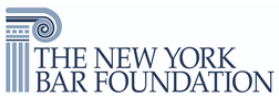
HRA may collect overpayments of cash assistance benefits you may have received. HRA recovers these overpayments through a process called recoupment.
HRA can seek to recoup (recover) your benefits when you have received:
Yes. HRA can seek repayment from y ou whether or not you still have an open cash assistance case.
If you have an open cash assistance case, HRA must send you a written Notice of Overpayment to tell you that they think you received more benefits than you were entitled to and a written Notice of Change in Grant to tell you that your cash assistance grant amount is going to be reduced and by how much.
HRA is supposed to send these to you before they reduce your cash benefits.
If you do not have an open case assistance case, HRA will send a different notice to you telling you the amount that it thinks you owe them and should repay.
If you have an open cash assistance case, y ou have the right to request a Fair Hearing to appeal the reduction of your cash grant to repay an overpayment HRA claims you owe. Sometimes people who used to receive ongoing cash assistance also have a right to request a Fair Hearing. The notice you receive will tell you this.
If you would like to request a F air Hearing click here.
If you do not have an open cash assistance case, there will be a number to call on the notice you receive. It is possible for HRA to sue you in civil court for the amount of cash assistance benefits it wants you to repay.
HRA lists each of your recoupments separately in its computer system. Each one has a number that goes with it called an “RTI #. ”
HRA recovers one overpayment at a time.
If you wish to challenge more than one recoupment of benefits, you must make sure that each recoupment is listed as a separate issue in your request for a fair hearing. You can refer to each one by its RTI# if you have it.
HRA must show that:
You might win your hearing if you can show that:
You might also win your hearing if HRA does not have all the documents it must submit to prove its case.
If you have an open cash assistance case, HRA will reduce you r benefits to “recoup” the amount it says you owe them .
If you do not have an open cash assistance case, HRA will send you a notice telling you how much you ow e and ask that you pay it back.
If you receive cash assistance, HRA is allowed to reduce your grant amount by up to 10% of your monthly grant.
Even if you have more than one overpayment, HRA cannot take more than 10% of your grant at any one time .
You can ask HRA to reduce the 10% to 5% if you have an “undue hardship” which is sometimes called a “hardship exception . ” To do this you must ask in writing and show HRA that your expenses are more than your income.
If you do not have an open cash assistance case, you can often make a repayment agreement with HRA and send them a monthly amount that you can afford.
If you do not pay, HRA can try to recover this money from you by beginning a court proceeding against you and getting a judgment for money they claim you owe.
( For an overpayment of SNAP benefits, HRA can also refer your case to the federal Treasury Offset Program (TOP) and the government can keep any federal tax refund you are owed up to the amount of the SNAP overpayment. )
The information in this document has been prepared by The Legal Aid Society for informational purposes only and is not legal advice. This information is not intended to create, and receipt of it does not constitute, an attorney-client relationship. You should not act upon any information without retaining professional legal counsel.

This material was made possible in part by a grant from the New York Bar Foundation.